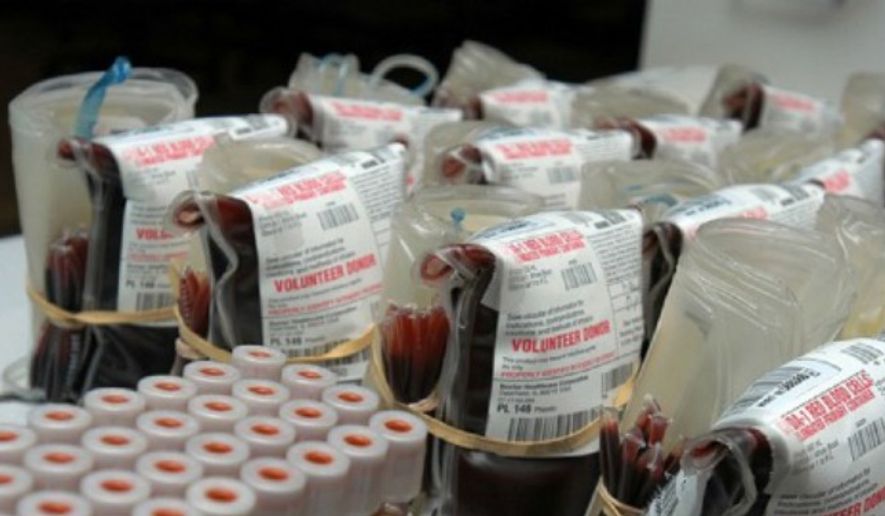The formal 60-day comment period about a proposed change in blood-donor policy for gay and bisexual men ends Tuesday.
More than 400 comments have been received, but the vast majority have been filed privately, according to data from the Food and Drug Administration (FDA) on the federal government’s website (www.regulations.gov) for comments.
A major proposed change would end the lifetime ban on blood donations from men who have had sex with a man (MSM) even once since 1977.
It would still defer MSM if they have had sex with a man in the past 12 months.
After the comment period ends Tuesday, the FDA will review the feedback, a spokeswoman said.
The agency will then prepare its final guidance for the blood-collecting industry, including changes to donor questionnaires, donor education and product management procedures.
SEE ALSO: HHS panel OKs 1-year deferral for gay, bisexual males to give blood
The blood policy issue is a “high priority” for the FDA, the spokeswoman said.
Gay-rights groups are unhappy with the proposed 12-month sexual “abstinence” condition, as they say it excludes monogamous or married gay men, and creates confusion about how HIV and other diseases are spread.
Policy supporters, including some federal advisers, blood-using groups and traditional values groups, say extraordinary caution is needed to ensure a safe blood supply.
MSM are vastly overrepresented in new transmissions of HIV, they note. Moreover, many other countries have a one-year deferral policy for MSM, and the proposed policy matches deferral policies for other people deemed to be at-risk for offering infected blood.
In the handful of comments made public, some argue that HIV detection in blood is extremely accurate, making a 12-month deferral arbitrary.
The “estimated residual risk” that HIV will be transmitted in a blood transfusion is one in 1.47 million, said the American Public Health Association, which asked the FDA to choose a policy that didn’t discriminate “based on outdated stereotypes.”
“We urge the FDA to implement a risk-based deferral system for all prospective donors,” rather than target MSM, wrote Christopher Cannon, senior manager for the National Coalition for LGBT Health.
On the other side, Ronald Bartzatt, a professor of medicinal chemistry at University of Nebraska, asked the FDA, “Do Not Compromise Blood Screening for America.”
The U.S. blood supply “must be protected and screened thoroughly to avoid tragic and expensive public epidemics,” he said, referring to the thousands of hemophiliacs and blood-transfusion recipients who died from AIDS-tainted blood in the 1980s and 1990s.
MSM was one of the first high-risk groups identified with the emerging AIDS epidemic in the 1980s.
The transfusions infections ended after researchers isolated the AIDS virus and agencies started using more sensitive blood tests to detect it. At the same time, “high-risk” donor groups — such as MSM, intravenous drug users and sex workers — were indefinitely deferred from donating blood.
• Cheryl Wetzstein can be reached at cwetzstein@washingtontimes.com.




Please read our comment policy before commenting.